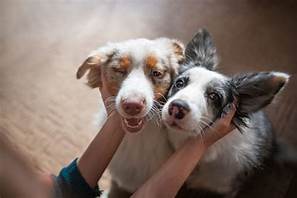What Does Pet Rent Cover?
Pet rent is a monthly fee that landlords charge tenants who have pets. The cost of pet rent varies depending on the type of pet, the size of the pet, and the location of the property. In some cases, pet rent may also cover additional costs, such as pet deposits or pet fees.

What Does Pet Rent Typically Cover?
Pet rent typically covers the following costs:
1. Wear and Tear: Pets can cause damage to a property, such as scratching floors, chewing on furniture, or staining carpets. Pet rent helps to cover the cost of repairs or replacements that are necessary due to pet damage.
2. Cleaning: Pets can also make a mess, such as shedding hair, tracking in dirt, or leaving behind pet waste. Pet rent helps to cover the cost of additional cleaning that is required to keep a property clean and sanitary.
3. Liability: If a pet injures someone or damages someone's property, the pet owner is legally liable. Pet rent can help to cover the cost of liability insurance, which can protect the landlord and the tenant in the event of an accident.
Additional Costs That May Be Covered by Pet Rent
In addition to the basic costs listed above, pet rent may also cover the following additional costs:
1. Pet Deposits: A pet deposit is a refundable fee that is paid by tenants at the beginning of their lease. The pet deposit is used to cover the cost of any damages that the pet may cause to the property.
2. Pet Fees: A pet fee is a non-refundable fee that is paid by tenants who have pets. The pet fee is used to cover the administrative costs of processing pet applications and pet agreements.
3. Pet Rent Increases: Some landlords may charge a higher rent for tenants who have pets. The pet rent increase is used to cover the additional costs of wear and tear, cleaning, and liability that are associated with pets.
How to Find a Pet-Friendly Rental
If you are looking for a pet-friendly rental, there are a few things you can do to make the process easier:
1. Start Your Search Early: Pet-friendly rentals are in high demand, so it is important to start your search early. The sooner you start looking, the more likely you are to find a rental that meets your needs.
2. Be Prepared to Pay More: Pet rent is typically higher than rent for non-pet-friendly rentals. Be prepared to pay a higher rent if you want to live in a pet-friendly rental.
3. Be Honest About Your Pet: When you apply for a pet-friendly rental, be honest about your pet. Provide the landlord with information about your pet's breed, size, age, and temperament. The more information you provide, the more likely you are to be approved for the rental.
Declaration: All article resources on this website, unless otherwise specified or labeled, are collected from online resources. If the content on this website infringes on the legitimate rights and interests of the original author, you can contact this website to delete it.






